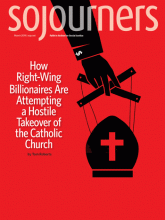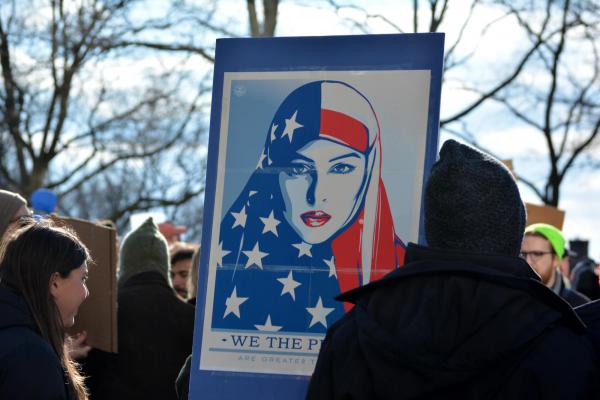SINCE HOBBY LOBBY won its landmark case in 2014, the religious freedom narrative has been dominated by traditionalist, politically conservative Christians. But for most of our nation’s history, religious freedom was a bipartisan value that echoed a commitment to inclusive pluralism.
In 1993 and 2000, religious freedom laws were passed almost unanimously in Congress, with support from social progressives as well as conservatives. Religious freedom was viewed as a basic constitutional right that should be applied indiscriminately.
The 2016 election only exacerbated the perception of religious freedom as a conservative Christian value. President Trump vocally supported Jack Phillips, the baker of the Masterpiece Cakeshop case who refused to bake for a gay couple’s wedding because of his religious beliefs. Trump took steps to dismantle the Johnson Amendment, which protects nonprofits from partisan political manipulation and, with the signing of the first of his two executive orders on religious freedom, announced, “We are giving our churches their voices back.”
In some cases, conservatives are claiming their right to religious freedom in entirely appropriate ways. Yet, in too many cases, far-right Christians have used religious freedom as a loophole for discrimination or to evade civil rights laws. And secular progressives have allowed them to do it, ceding religious liberty to extremists and jeopardizing this core tenet of democracy.
But that narrative could be changing.
Read the Full Article

